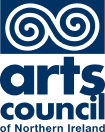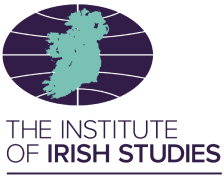Introduction
The decades following the 1998 Good Friday/Belfast Agreement saw an expansion of support for cultural activities aimed at fostering reconciliation in aftermath of the British-Irish conflict known colloquially as ‘the Troubles’. Yet in spite of an increase in funder-led processes of audit and evaluation, there exists a significant absence of accessible data recording the development, production and experience of artistic practices for peacebuilding, with valuable historical and cultural material consigned to hard-to-reach repositories, the back rooms of arts organisations, and the memories of participants and practitioners.
Created in partnership with the Arts Council of Northern Ireland and with key arts and community stakeholders, our Database of Arts-Based Peacebuilding is designed to be a resource for sharing knowledge and information about these important regional arts practices. In it, you will find basic information on arts-based peacebuilding projects that have taken place since the beginning of the peace process (c. 1994 – present) organised in an easy-to-navigate and searchable format.
Where has this project come from?
Our AHRC-funded project, The Art of Reconciliation (2017-2021) investigated the impact of the funded arts on conflict transformation in Northern Ireland (NI), in the context of the British-Irish conflict. Through extended conversations and creative engagements with over 40 arts organisations, practitioners, funders, and participants, we articulated a much clearer understanding of the structural barriers preventing effective evaluation and documentation of AfR.
We learnt that financially precarious arts organisations have little time or means to archive their own work. Managing different sources of funding and funder-led documentation processes absorbs already scant resources. Though funders hold some data on the work they have funded, they do so primarily in order to assess the efficacy of single, time-limited projects, which results in information that is detached from the wider historical context that gives it meaning. Significant collections of cultural objects and materials, photographs, scanned documents, audio and video recordings, online curated exhibitions, short films and much more, are currently consigned to hard-to-reach repositories, the back rooms of arts organisations, and dispersed across community collections and the memories of participants and practitioners. Over time, such problems have created significant structural barriers to building the kind of coherent and open access record needed to develop applied arts practice in Ireland, Britain and beyond. We hope that this database will constitute a first step towards better preserving, sharing, and learning from such work into the future.
For more information, please consult the project website. You find a full list of the background research behind this database and the above findings on the Research page of this website.
What is included in the database?
We use ‘Art for Reconciliation’ (AfR) to refer to arts practices involved in some way with the process of peacebuilding, but we recognise that ‘reconciliation’ is a less-than-perfect, catch-all term that is contested in the context of Northern Ireland. Most practitioners and scholars agree that reconciliation exists on a spectrum ranging from the minimalist, such as fostering coexistence and non-violent political mediation between formerly warring parties, to the maximalist, such as the development of positive relations and multi-valent identities that cut across prevailing, if important, political differences. Artists working across a very broad range of media have brought about projects that construct reconciliation in a variety of ways, engaging with issues as diverse as transitional justice, social marginalisation, cultural recognition, educational inequality, and political exclusion.
With this in mind, the database avoids imposing a particular definition of reconciliation in order to capture the full range of arts-based peacebuilding in the North. Instead, we hope that asking practitioners and arts organisations to describe their work in their own terms will help us develop a better understanding of reconciliation’s meaning in artistic practice. While art cannot be expected to resolve the many issues that come with living with the legacies of war, in collecting information on the work artists do we hope to better establish where the arts can best be deployed for peace.
We therefore invite groups involved across the arts – whether that be in music, film, literature, visual art, theatre, poetry, dance and beyond – to fill out our web form [link to be provided] and contribute to the database.
For further queries, feel free to contact the research team.
How do I submit?
Submitting to the database requires only a few easy steps. Firstly, please complete our web form providing as much information as you possibly can on your arts project.
Each project will get a page of its own. If you would like to submit images or other digital material associated with your project’s page, please email a.coupe@liverpool.ac.uk. Please ensure you provide the relevant permission for the reproduction of this material.




